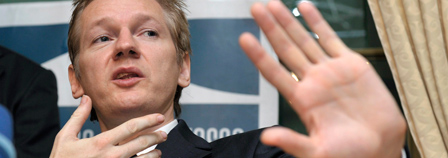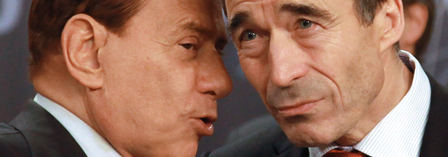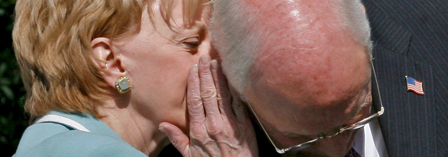Erstellt am: 29. 11. 2010 - 18:49 Uhr
The era of "Radical Transparency"
What are we to make of WikiLeaks and its whistle-blowing founder and mastermind, the convicted computer hacker Julian Assange?
Is he, as his fans insist, a hero of media freedom who is valiantly keeping our governments accountable for their formerly shadowy actions? Or is he rather a disingenuously self-righteous, vainglorious and irresponsible publicity-seeker?

KEYSTONE FILE MARTIAL TREZZINI
The jury is out but already one US politician has said he wants to see Assange arrested as the leader of "a terrorist group".
Assange’s latest coup has been the most sensational yet. Thousands of secret US diplomatic cables have been made available to five publications, including the New York Times, the UK's Guardian newspaper and news magazine Der Spiegel.
Frantic Apologies
Some of the “diplomatic” leaks are merely amusing. They include unflatteringly candid portraits of world leaders that have seen US Secretary of State Hillary Clinton frantically working the phones for a series of hurried apologies. Her phone bill will be large. The classified documents reveal US diplomats reporting back to Washington that French President Nicholas Sarkozy is apparently “thin-skinned”. Italian Premier Silvio Berlusconi, meanwhile, is described as “feckless”, while German Chancellor Angela Merkel is dismissed “risk-averse”. And the leaks reveal some valuable insight into the daily routine of Libya's leader Moammar Gaddafi, who, it seems, will apparently only sleep on the ground floor, is never to be found without the “voluptuous blonde” who “nurses him”.
Need to Know Information
But other revelations are quite literally explosive in nature. Some imply that Saudi Arabia and other western Gulf States are rather keen that the US should bomb Iran's nuclear facilities. Our security analyst Paul Rogers argues that these latter revelations is information “that does need to be in the public domain.” He say that the deep antipathy that the Gulf Arab states have for Iran is important for us to understand the region as a possible tinder box for future conflict. This tension has been well reported but these leaks show it in “a heightened form.” This is a complicated region that we need to understand.
The Wikileak Fallout
Unsurprisingly though, the leaks have caused real concern in foreign embassies around the world, especially for those officials who are now seeing what they thought were confidential communications with US diplomats printed in some of the most well-read papers in the world. Wikileaks critics point out that we benefit from our governments communicating freely with each other and these leaks are unlikely to encourage egg-faced diplomats to be particularly candid in the future so we might suffer from a diplomatic breakdown in trust.

EPA
The US goes much further, saying that by putting a mass of sensitive information into the public domain the leaks put lives in danger. It’s a winning emotional argument, particularly with relatives and friends of troops serving abroad, but is it a winning logical argument? Rogers thinks not. The papers who have been given access to the cables say they have removed particular mentions of people or information that would put lives at risk. Rogers says the US is right to stress its most powerful argument, but that utterly that argument lacks “kudos”.
This is the third in a series of publications of high-profile classified documents by Wikileaks and each time the US has said lives will be lost, but Chris Berg, a Research Fellow at the Institute of Public Affairs in Melbourne Australia points out that under pressure the same authorities have failed to come up with any evidence that this is the case. It seems more likely that the emotive argument is a screen to hide the annoyance and embarrassment of a Western state found shown to involved in the reckless killings of civilians in Iraq and collusion in acts of torture. Columnist Simon Jenkins, writing in the Guardian, fends his papers publication of the links with the pithy truism that "the job of the media is not to protect power from embarrassment" and calls the US argument "pre-emptive scaremongering."
Assange naturally sees Wikileaks as a force for good – the little brother spying on Big Brother and keeping him honest. The site purports to be “funded by human rights campaigners, investigative journalists, technologists and the general public". And the fact that the site might cause military officials to think twice before ordering attacks in densely populated civilian areas and that civilian politician know someone might find out when wittingly allow prisoners to be brutalized is surely to be welcomed.
For all the virtues of public disclosure, however, for many people there is something troubling about the amount of power that Assange wields. Thanks to his own computer skills and his network of collaborators, he has the power choose what information to release and what information to withhold. He chooses which papers should benefit from the leaks as if her were a monarch dispensing patronage (The New York Times and the Guardian are not dissimilar in philosophy). Assange is not Reporters Without Borders, he is neither nor NGO. He is a man with opinions and an agenda but not checks and balances and he appears to see himself as the world's policeman. That's a lot of power and power, as we know, corrupts. Should we be concerned? I have more questions than answers on this one.

EPA
Currently 39-year old Assange is said to be lying low in his native Australia and justice authorities in Australia say they're investigating whether he has broken any laws with the latest leaking of confidential documents. But Chris Berg says he is not sure whether they have a strong case against him or whether the Australian government is going to go out of its way to prosecute him. There has also been speculation that he has held back some leaks about his home country knowing that one day in the future he will need a home where he is reasonably welcome.
Radical Transparency
Meanwhile the embarrassment to the US is not just diplomatic. It is also a humiliating security lapse. These were meant to be massively protected computer networks. But, according to our analysts, this might just be a sign of the times. In the past, diplomatic communication was slower and cruder but also harder to tack into. “The reality now”, says Paul Rogers, “is that anything now committed to electronic data transmission has to be considered potentially available for everyone for eternity.”
Berg calls this new WikiLeaks era one of “radical transparency” and warns governments that they are going to have to adapt to this “massive change” in the way the media works. He says they will have to much more careful and guarded about what they write into any computer, even when they think they are off the record and in a “secure area”. Such computers systems are evidently highly fallible. WikiLeaks, he says, is no passing phenomenon; the era of radical transparency is here to stay. Maybe in the future the only secrets will be spoken ones.


